★★
“The eighties called. They want their movie back.”
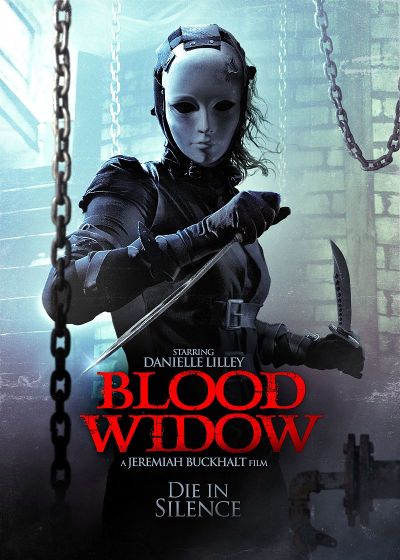 In the slasher genre of horror, the perpetrators seem almost exclusively male: Michael Myers, Jason Vorhees, Freddy Krueger, etc. Women can play an important role, and we’ve covered some of them here before – but it’s much more often as the “final girl”, than the one wielding the machete. However, it’s often forgotten that, in the original Friday the 13th movie, the killer was not Jason, but his mother, so there is some precedent for the female antagonist. See also Nurse 3D, American Horror Story: Coven or perhaps best of all, SexyKiller, whose heroine manages both to be the killer and the final girl.
In the slasher genre of horror, the perpetrators seem almost exclusively male: Michael Myers, Jason Vorhees, Freddy Krueger, etc. Women can play an important role, and we’ve covered some of them here before – but it’s much more often as the “final girl”, than the one wielding the machete. However, it’s often forgotten that, in the original Friday the 13th movie, the killer was not Jason, but his mother, so there is some precedent for the female antagonist. See also Nurse 3D, American Horror Story: Coven or perhaps best of all, SexyKiller, whose heroine manages both to be the killer and the final girl.
It was in the hopes of getting something novel along those lines that I went into this, only to be severely disappointed by a product which is very little more than a standard slasher. A group of photogenic, but vacuous and tremendously uninteresting, teens head out to a remote house to par-tay, only to break into the spooky dwelling on the next door property, engage in petty vandalism, drug-taking and other anti-social behaviour, for which they naturally pay a heavy price. About the only difference is, the mad, masked killer dispatching them with extreme prejudice is a woman, a former resident of the boarding school next door, who was tormented into psychosis. It’s an idea not without potential: the look of the maniac-ette is very stylish (even if the mask seems a Halloween knock-off), and the actress portraying her (Henry) does a good job, particularly considering her face is rarely if ever seen, coming over as menacing in just about every one of her scenes.
But beyond that, none of the potential is utilized, In fact, the gender of the killer is entirely irrelevant to proceedings, and the final scene seems more appropriate for a male psycho – it left me wondering if perhaps that was the original plan. Really, for a first-time feature, as this is for the director, I’d have tried to push the envelope much more, instead of apparently being content to tread the same ground as we’ve seen a million times before. Maybe this would have passed muster thirty years ago? Now, not so much, with viewers far more cynically self-aware, and wanting more than an uninteresting rehash of its predecessors. Save the gender of the assailant, there’s nothing new or of note here; it isn’t enough, when it’s little more than an afterthought, and everything else we get, has been done a lot better elsewhere.
Dir: Jeremiah Buckhalt
Star: Danielle Lilley, Brandon Kyle Peters, Christopher de Padua, Gabrielle Ann Henry






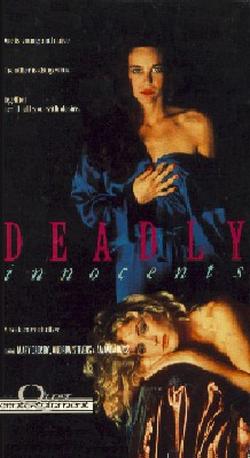
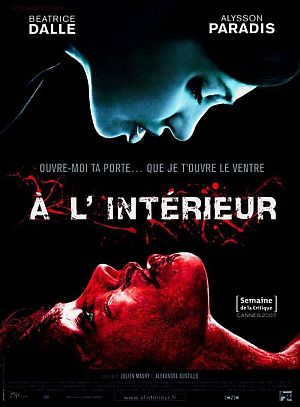
 The ‘final girl’ is a well-worn concept in horror: the last survivor, typically the “good” girl, finally fights back against the assailant in the movie’s climax. It is isn’t normally enough to merit inclusion here, since it’s usually a relatively minor aspect of the film. Here, however, not only is it just about the entire film, the main theme – motherhood and the instincts it arouses – is entirely feminine. Aliens, and Ripley’s surrogate parenting of Newt, would be another example. And it’s also a rarity in the horror genre for both protagonist
The ‘final girl’ is a well-worn concept in horror: the last survivor, typically the “good” girl, finally fights back against the assailant in the movie’s climax. It is isn’t normally enough to merit inclusion here, since it’s usually a relatively minor aspect of the film. Here, however, not only is it just about the entire film, the main theme – motherhood and the instincts it arouses – is entirely feminine. Aliens, and Ripley’s surrogate parenting of Newt, would be another example. And it’s also a rarity in the horror genre for both protagonist 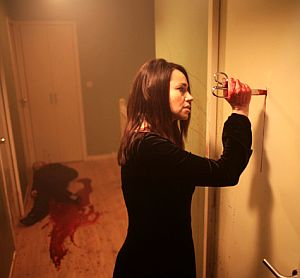 Let me be perfectly clear: this is hardcore horror of the most unrelenting sort, completely unsuitable for those of a nervous disposition, and particularly pregnant women. In the 1980’s, Dalle was a sexpot, for her role in Betty Blue, but you can flush all memory of that down the toilet: here, she has a feral, near-demonic intensity, and god help anyone who is unfortunate enough to get in her way. Particularly the men, who are disposed of with complete dispassion and brutality; as the film goes on, her relationship with Sarah becomes complex, and more a case of, “I’m taking your baby, and we can do this the hard way or… Well, really, that’s all there is. Sorry.” Friends, family, even an entire patrol of cops – no-one can help Sarah. She’s completely on her own, and her fate is entirely in her own hands.
Let me be perfectly clear: this is hardcore horror of the most unrelenting sort, completely unsuitable for those of a nervous disposition, and particularly pregnant women. In the 1980’s, Dalle was a sexpot, for her role in Betty Blue, but you can flush all memory of that down the toilet: here, she has a feral, near-demonic intensity, and god help anyone who is unfortunate enough to get in her way. Particularly the men, who are disposed of with complete dispassion and brutality; as the film goes on, her relationship with Sarah becomes complex, and more a case of, “I’m taking your baby, and we can do this the hard way or… Well, really, that’s all there is. Sorry.” Friends, family, even an entire patrol of cops – no-one can help Sarah. She’s completely on her own, and her fate is entirely in her own hands.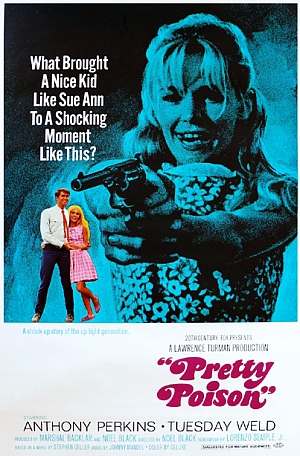 I was expecting more a quirky comedy than a dark thriller from this 1968 film, and only bothered with it because I’m a fan of Perkins (Edge of Sanity is a beautifully-lurid retelling of the Dr. Jekyll story, with the trash quotient cranked up to 11). Imagine my surprise when… Well, let’s start at the beginning, shall we? Juvenile arsonist Dennis Pitt (Perkins) is finally released back into the community as “cured”, though his fondness for fantastic invention appears unchanged. For a while he works at a chemical in the small town of Winslow without apparent issue. But trouble looms in the pretty, 17-year old shape of Sue Ann Stepanek (Weld), even though she appears to be squeaky-clean – an honor-roll student, majorette, etc. To entice her, Pitt spins a tale of being a secret agent, investigating a plan to poison the water supply. Sue Ann seems to swallow it, hook, line and sinker, but after one of their ‘sabotage mission’ goes wrong, it’s apparent that Sue Ann has her boyfriend
I was expecting more a quirky comedy than a dark thriller from this 1968 film, and only bothered with it because I’m a fan of Perkins (Edge of Sanity is a beautifully-lurid retelling of the Dr. Jekyll story, with the trash quotient cranked up to 11). Imagine my surprise when… Well, let’s start at the beginning, shall we? Juvenile arsonist Dennis Pitt (Perkins) is finally released back into the community as “cured”, though his fondness for fantastic invention appears unchanged. For a while he works at a chemical in the small town of Winslow without apparent issue. But trouble looms in the pretty, 17-year old shape of Sue Ann Stepanek (Weld), even though she appears to be squeaky-clean – an honor-roll student, majorette, etc. To entice her, Pitt spins a tale of being a secret agent, investigating a plan to poison the water supply. Sue Ann seems to swallow it, hook, line and sinker, but after one of their ‘sabotage mission’ goes wrong, it’s apparent that Sue Ann has her boyfriend 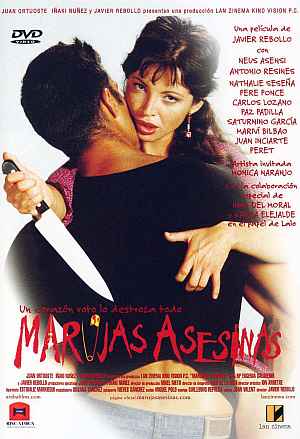 This tale of a Hispanic wife whose sanity disintegrates, beginning with the murder of her husband and ending with…well, you have to see it, had me shifting somewhat nervously, as
This tale of a Hispanic wife whose sanity disintegrates, beginning with the murder of her husband and ending with…well, you have to see it, had me shifting somewhat nervously, as 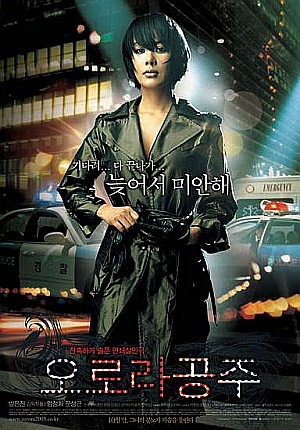 After inflicting Forbidden Warrior on Chris, my stock with her had slumped like Morgan Stanley. Fortunately, this Korean serial-killer flick provided a good measure of redemption. It stars in a department store, where Sun-Jung (Uhm) sees a mother abusing her young daughter, before leaving her and going into a stall. Sun-Jung shepherds the girl outside, breaks into the stall and stabs the mother repeatedly. The case is investigated by Detective Oh (Mun), who spots his ex-wife in the store security video. When bodies keep turning up, though killed in different ways, the police link the cases due to the cartoon stickers found on each scene. Oh gradually comes to suspect his wife is taking revenge on those holds she responsible – directly, or otherwise – for the death of their child, killed in a brutal kidnapping previously. Is that really the case, and if so, does he have the moral fortitude to turn in a woman he still loves as a murderer?
After inflicting Forbidden Warrior on Chris, my stock with her had slumped like Morgan Stanley. Fortunately, this Korean serial-killer flick provided a good measure of redemption. It stars in a department store, where Sun-Jung (Uhm) sees a mother abusing her young daughter, before leaving her and going into a stall. Sun-Jung shepherds the girl outside, breaks into the stall and stabs the mother repeatedly. The case is investigated by Detective Oh (Mun), who spots his ex-wife in the store security video. When bodies keep turning up, though killed in different ways, the police link the cases due to the cartoon stickers found on each scene. Oh gradually comes to suspect his wife is taking revenge on those holds she responsible – directly, or otherwise – for the death of their child, killed in a brutal kidnapping previously. Is that really the case, and if so, does he have the moral fortitude to turn in a woman he still loves as a murderer?
 When Jamie (Bowen) accidentally kills her unpleasant boyfriend, it seems her life is over. Luckily, the first person on the scene is Laura (Lords), a latent psychopath who seizes the chance to fulfill her lifelong ambition: killing men who treat women badly. As she says, “Ridding the world of irredeemable men is what I was born to do.” Neither Jamie nor the third initiate into their little secret, Arlene (Maxey), are quite as enthusiastic, but despite this, Laura sets to work with a vengeance, and things start spiralling out of control.
When Jamie (Bowen) accidentally kills her unpleasant boyfriend, it seems her life is over. Luckily, the first person on the scene is Laura (Lords), a latent psychopath who seizes the chance to fulfill her lifelong ambition: killing men who treat women badly. As she says, “Ridding the world of irredeemable men is what I was born to do.” Neither Jamie nor the third initiate into their little secret, Arlene (Maxey), are quite as enthusiastic, but despite this, Laura sets to work with a vengeance, and things start spiralling out of control.